Annika Ganzeveld, Ashka Jhaveri, Andie Parry, Peter Mills, Alexandra Braverman, and Brian Carter
Information Cutoff: 2:00pm ET
The Iran Update provides insights into Iranian and Iranian-sponsored activities abroad that undermine regional stability and threaten US forces and interests. It also covers events and trends that affect the stability and decision-making of the Iranian regime. The Critical Threats Project (CTP) at the American Enterprise Institute and the Institute for the Study of War (ISW) provides these updates regularly based on regional events. For more on developments in Iran and the region, see our interactive map of Iran and the Middle East.
Note: CTP and ISW have refocused the update to cover the Israel-Hamas war. The new sections address developments in the Gaza Strip, the West Bank, Lebanon, and Syria, as well as noteworthy activity from Iran’s Axis of Resistance. We do not report in detail on war crimes because these activities are well-covered in Western media and do not directly affect the military operations we are assessing and forecasting. We utterly condemn violations of the laws of armed conflict and the Geneva Conventions and crimes against humanity even though we do not describe them in these reports.
Click here to see CTP and ISW’s interactive map of Israeli ground operations. This map is updated daily alongside the static maps present in this report.
Iranian Judiciary Chief Gholam Hossein Mohseni Ejei discussed the removal of US forces from Iraq, counterterrorism, and border security with senior Iraqi politicians in Baghdad on February 13 and 14. Iranian judicial officials rarely travel abroad. Acting Iraqi Parliament Speaker Mohsen al Mandalawi claimed that the Iraqi Parliament will pass a law in the coming weeks to “completely” end the US presence in Iraq during his meeting with Ejei.[1] Mandalawi described Iraq as a “strong” country that “does not need foreign forces to protect it.”[2] Prominent Shia cleric Ammar al Hakim separately expressed support for the Iraqi federal government’s negotiations with the United States about the status of US-led international coalition forces in Iraq during his meeting with Ejei.[3] Ejei expressed support for ending the US-led international coalition’s mission to defeat ISIS in Iraq.[4] Facilitating the removal of US forces from the Middle East is one of Iran’s most important strategic objectives and Iran supports Iranian-backed Iraqi actors’ ongoing military and political campaign to expel US forces from Iraq.
Mandalawi and Ejei’s positions support Iran’s goal to remove US forces from Iraq, but these positions ignore the current security situation in Iraq. Iran and its proxies and partners support the effort to expel US forces from Iraq. Mandalawi’s claim that Iraq “does not need foreign forces to protect it” ignores the realities of the US mission in Iraq and the issues plaguing the Iraqi Security Forces. The US mission in Iraq focuses primarily on advising Iraqi general officers and improving the ISF’s deficiencies in fire support, intelligence, and logistics.[5] US forces in Iraq do not conduct combat operations. Iran's partners in Iraq aim to remove US forces in part because the US support for the ISF strengthens the ISF's position vis-a-vis the Popular Mobilization Forces (PMF). Iranian-backed actors in the PMF view some ISF units as a possible threat and seek to undermine them. The Counterterrorism Service (CTS), for example, arrested 14 Kataib Hezbollah members in a raid in June 2020.[6] CTP-ISW continues to assess that an Iraqi decision to expel US forces from Iraq would very likely create space for ISIS to rapidly resurge in Syria within 12 to 24 months and then threaten Iraq.[7]
Ejei separately discussed border security and counterterrorism with Iraqi Prime Minister Mohammad Shia al Sudani. The Iraqi Prime Minister’s Office reported that Ejei and Sudani discussed joint efforts to confront terrorism and drug trafficking, while Iranian state media emphasized that Ejei called on the Iraqi government to “fully implement” the March 2023 security agreement between Tehran and Baghdad.[8] This agreement requires Iraqi authorities to disarm and relocate members of Iranian Kurdish opposition groups away from Iran’s borders.[9] Iran has historically accused anti-regime Kurdish militant groups and Israel of using Iraqi Kurdistan to facilitate joint operations into Iran. Ejei also met with Iraqi President Abdul Latif al Rashid.[10]
Iraqi Prime Minister Mohammad Shia al Sudani visited Iraqi Army and Popular Mobilization Forces (PMF) headquarters in northwestern Iraq on February 12.[11] Sudani visited an Iraqi Army 21st Division headquarters along the "Wadi al Tharthar line,” an area that extends from Salah al Din Province to the Iraqi border with Syria in western Ninewa Province.[12] Sudani formed the 21st Division in February 2023 at the request of the Iraqi Defense Ministry.[13] Brig. Gen. Imad Ahmed Mohammad assumed command of this division after serving in the Directorate of Military Engineering.[14] Sudani also visited the 44th PMF Brigade (Liwa Ansar al Marjaiya) in Hatra, Ninewa Province.[15] The 44th PMF Brigade is affiliated with Grand Ayatollah Ali al Sistani, who is an influential quietist grand ayatollah based in Najaf.[16] Hamid al Yasiri commands the brigade.[17] Iraqi media reported that Sudani traveled to northwestern Iraq to demonstrate that areas where ISIS members previously infiltrated Iraq from Syria are now safe.[18] Sudani reiterated during his visit to these headquarters that Iraq has an “obligation” to end the US-led international coalition’s presence in Iraq.[19]
Former Parliament Speaker Mohammad al Halbousi released a statement on February 14 that warned “war merchants and seditionists from the Islamist parties” against “tampering with the stability of Anbar [Province].”[20] Halbousi was likely referring to the Shia Coordination Framework, a loose coalition of Iranian-backed Iraqi political parties that are pushing for the expulsion of US forces from Iraq. An independent Iraqi outlet framed Halbousi’s warning within the context of Sudani’s visit to Iraqi Army and PMF headquarters on February 13.[21] The outlet suggested that Halbousi might oppose the Shia Coordination Framework efforts to end the US-led international Coalition’s mission to defeat ISIS in Iraq.[22] Halbousi may also have been referring to Shia Coordination Framework efforts to prevent his favored candidate from becoming parliament speaker.
The number of Palestinian militia attacks in the northern Gaza Strip dropped from a daily average of 5 attacks between January 31 and February 6 to a daily average of 2.7 attacks between February 7 and February 13. Palestinian Islamic Jihad (PIJ) fighters mortared Israeli forces in the northern Gaza Strip on February 14, but CTP-ISW cannot confirm the point of origin. The IDF conducted a two-week, division-sized clearing operation in early February that targeted Hamas underground infrastructure and fighters.[23] The IDF degraded Hamas units during previous clearing operations in the northern Gaza Strip earlier in the war, but Hamas “took advantage” of the IDF’s withdrawal in late December to reconstitute some of its military units.[24] Hamas will likely continue to appoint new commanders in the aftermath of the latest clearing operation and learn from its mistakes to better protect its new leaders from future Israeli operations.[25] Hamas retains many experienced commanders—including the Gaza City Brigade commander—who will continue to rebuild the organization between Israeli clearing operations.
Key Takeaways:Iraq: Iranian Judiciary Chief Gholam Hossein Mohseni Ejei discussed the removal of US forces from Iraq, counterterrorism, and border security with senior Iraqi politicians in Baghdad on February 13 and 14. The effort to expel US forces from Iraq supports Iran’s goals but ignores the current security situation in Iraq.
Former Parliament Speaker Mohammad al Halbousi released a statement on February 14 that warned “war merchants and seditionists from the Islamist parties” against “tampering with the stability of Anbar [Province].” Halbousi was likely referring to the Shia Coordination Framework, a loose coalition of Iranian-backed Iraqi political parties that are pushing for the expulsion of US forces from Iraq.
The Gaza Strip: The number of Palestinian militia attacks in the northern Gaza Strip dropped from a daily average of 5 attacks between January 31 and February 6 to a daily average of 2.7 attacks between February 7 and February 13.
The IDF conducted a two-week, division-sized clearing operation in early February that targeted Hamas underground infrastructure and fighters.
The IDF degraded Hamas units during previous clearing operations in the northern Gaza Strip earlier in the war, but Hamas “took advantage” of the IDF’s withdrawal in late December to reconstitute some of its military units.
Ceasefire Negotiation: Israeli Prime Minister Benjamin Netanyahu declined to send an Israeli delegation to Cairo on February 14 for “low-level” follow-up talks to discuss ceasefire proposals.
Lebanon: Likely Lebanese Hezbollah fighters fired 11 122mm Grad rockets at the IDF Northern Command headquarters in Safed in northern Israel on February 14. The IDF conducted a series of major airstrikes on February 14 that targeted Hezbollah positions and assets in southern Lebanon in response to the attack targeting Safed.
Gaza Strip
Axis of Resistance campaign objectives:Erode the will of the Israeli political establishment and public to launch and sustain a major ground operation into the Gaza Strip
Degrade IDF material and morale around the Gaza Strip.
Israeli forces clashed with Palestinian fighters in the central Gaza Strip on February 14. The IDF Nahal Brigade (assigned to the 162nd Division) killed at least ten Palestinian fighters.[26] Israeli forces directed an airstrike targeting two armed Palestinian fighters in the central Gaza Strip.[27] The airstrike caused secondary explosions.[28] Palestinian militias have not claimed any attacks targeting Israeli forces in the central Gaza Strip since February 9.[29]
The IDF continued clearing operations in several sectors of Khan Younis on February 14. The IDF 98th Division located tunnels and captured large quantities of weapons during clearing operations in western Khan Younis on February 14.[30] The division also directed airstrikes targeting Palestinian fighters attacking IDF forces in the city.[31]
A journalist at Nasser Hospital in western Khan Younis told CNN that hundreds of patients and people left the hospital on February 14 amid sounds of “heavy gunfire.”[32] Israeli forces opened a “secure route” on February 14 from the hospital and its surroundings to evacuate civilians to the humanitarian zone in the southern Gaza Strip.[33]
Palestinian fighters attempted to defend against Israeli operations across Khan Younis on February 14. The al Aqsa Martyrs’ Brigades, which is the self-proclaimed military wing of Fatah, fired a rocket-propelled grenade targeting an IDF tank near Nasser Hospital.[34] The militia reported that its fighters also targeted Israeli forces in central and eastern Khan Younis using small arms and mortars.[35] Hamas’ military wing posted footage on February 14 of its fighters firing RPGs targeting Israeli forces in Khan Younis.[36]
Israel will allow the United Arab Emirates field hospital in Rafah to use Starlink satellite internet services.[37] The hospital, which is one of the few international field hospitals in the Gaza Strip, is staffed by 50 doctors, nurses, pharmacists and lab technicians.[38] Israel said on November 27 that Elon Musk said that he would not activate Starlink in the Gaza Strip unless Israel permits him to do so.[39]
Israeli Prime Minister Benjamin Netanyahu declined to send an Israeli delegation to Cairo on February 14 for “low-level” follow-up talks to discuss ceasefire proposals.[40] Unspecified Israeli officials said that Netanyahu will not agree to further ”low-level” talks unless Hamas agrees to reduce the number of Palestinian prisoners that Israel would release as part of a ceasefire deal.[41] The Qatari prime minister and US, Egyptian, and Israeli intelligence chiefs met in Cairo on February 13 to broker a deal for the release of hostages and an extended pause in fighting in the Gaza Strip.[42]
West Bank
Axis of Resistance campaign objectives:Draw IDF assets and resources toward the West Bank and fix them there
Israeli forces clashed with Palestinian fighters at least four times across the West Bank on February 14. The al Aqsa Martyrs' Brigades and PIJ both claimed small arms fire targeting Mairav, a town in Israel near the West Bank.[43] A local Israeli official said that there were no injuries.[44] The IDF returned fire towards Jilbon, in the West Bank.[45] The al Aqsa Martyrs’ Brigades said separately that it fired small arms targeting Israeli security forces near Hebron and Jenin.[46] PIJ claimed two attacks targeting the IDF near Jenin.[47]
This map is not an exhaustive depiction of clashes and demonstrations in the West Bank.
Southern Lebanon and Golan Heights
Axis of Resistance campaign objectives:Draw IDF assets and resources toward northern Israel and fix them there
Set conditions for successive campaigns into northern Israel
Likely Lebanese Hezbollah fighters fired 11 122mm Grad rockets at the IDF Northern Command headquarters in Safed in northern Israel on February 14.[48] The attack killed one Israeli soldier and injured eight others.[49] Hezbollah launched the rockets from Ramish, southern Lebanon, which is about 10 miles north of Safed.[50] Israeli media said that the Iron Dome launched interceptors at the barrage but failed to intercept the rockets.[51] Hezbollah did not claim the Safed base attack or any other attack on February 14. Hezbollah last fired a rocket barrage targeting the IDF in Safed in late November 2023.[52] The Popular Front for the Liberation of Palestine—a leftist Palestinian militia aligned with Hamas—attributed the attack to Hezbollah and praised the operation.[53] The IDF said that it monitored two other rocket salvoes targeting Northern Israel on February 14.[54]
The IDF conducted a series of major airstrikes on February 14 that targeted Hezbollah positions and assets in southern Lebanon in response to the attack targeting Safed. The strikes targeted Hezbollah military buildings, combat operations rooms, and Rawdan unit infrastructure.[55] Hezbollah media claimed that the Israeli strikes also killed young civilians. A senior Lebanese Hezbollah official vowed ”retaliation” in response to the strikes.[56]
The IDF Chief of Staff Herzi Halevi visited the IDF Northern Command and local municipality officials after the Safed base attack.[57] Halevi stated that the war against Hezbollah would “probably not” happen ”tomorrow” but that the IDF is preparing for war in Northern Israel.[58] Halevi reiterated the IDF’s promise that it will allow residents of northern Israel to return to their homes by pushing Hezbollah back from the border.[59]
Recorded reports of attacks; CTP-ISW cannot independently verify impact.
Iran and Axis of Resistance
Axis of Resistance campaign objectives:Demonstrate the capability and willingness of Iran and the Axis of Resistance to escalate against the United States and Israel on multiple fronts
Set conditions to fight a regional war on multiple fronts
US Central Command (CENTCOM) forces conducted a pre-emptive strike that targeted one Houthi mobile anti-ship cruise missile in Yemen on February 13.[60] The Houthis had prepared to launch the missile targeting ships in the Red Sea.
CENTCOM said that the Houthis separately launched one anti-ship ballistic missile into international shipping lanes in the Gulf of Aden.[61] US Navy ships in the area did not intercept the missile because its trajectory did not endanger any vessels.
The US Defense Department deputy press secretary stated that Iranian-backed militias in Iraq and Syria have not attacked US forces since February 4.[62] The Islamic Resistance in Iraq has not claimed an attack targeting US forces since February 4. An unspecified security source told Reuters on February 10 that US air defense systems intercepted one-way attack drones targeting Conoco Mission Support Site in eastern Syria.[63]
The deputy head of the Russian Center for Reconciliation in Syria claimed that the IDF Air Force conducted an airstrike targeting Nairab Airport in Aleppo, Syria, on February 12.[64] The Syrian Defense Ministry reported on February 12 that the Syrian Arab Army planned to detonate explosives in Aleppo.[65] The Syrian Defense Ministry normally confirms Israeli airstrikes. An independent analyst on X (formerly Twitter) said on February 12 that explosions in Aleppo were controlled detonations, not airstrikes.[66]
Iranian officials claimed that unspecified terrorist actors caused two explosions on natural gas pipelines in Chaharmahal and Bakhtiari and Fars provinces on February 14. The two explosions targeted Iran's main south-north natural gas pipeline on February 14.[67] Iranian officials stated that there were no casualties.[68] The explosions disrupted gas supply to several villages in Esfahan, Zanjan, North Khorasan and West Azerbaijan provinces.[69] Iranian energy officials called the explosions an act of ”terrorist sabotage” and alleged that ”Iran’s enemies” aimed to cut off gas supply to Iran’s major provinces.[70] The Iranian oil minister said that gas pipelines and oil refineries are ”targets” for the United States and its allies, and he compared the attack to a series unclaimed attacks on more than a dozen gas pipelines in four regions of Iran in 2011.[71] IRGC-controlled media described the explosion as a ”terrorist act of vandalism.”[72] No group claimed responsibility for the explosions.
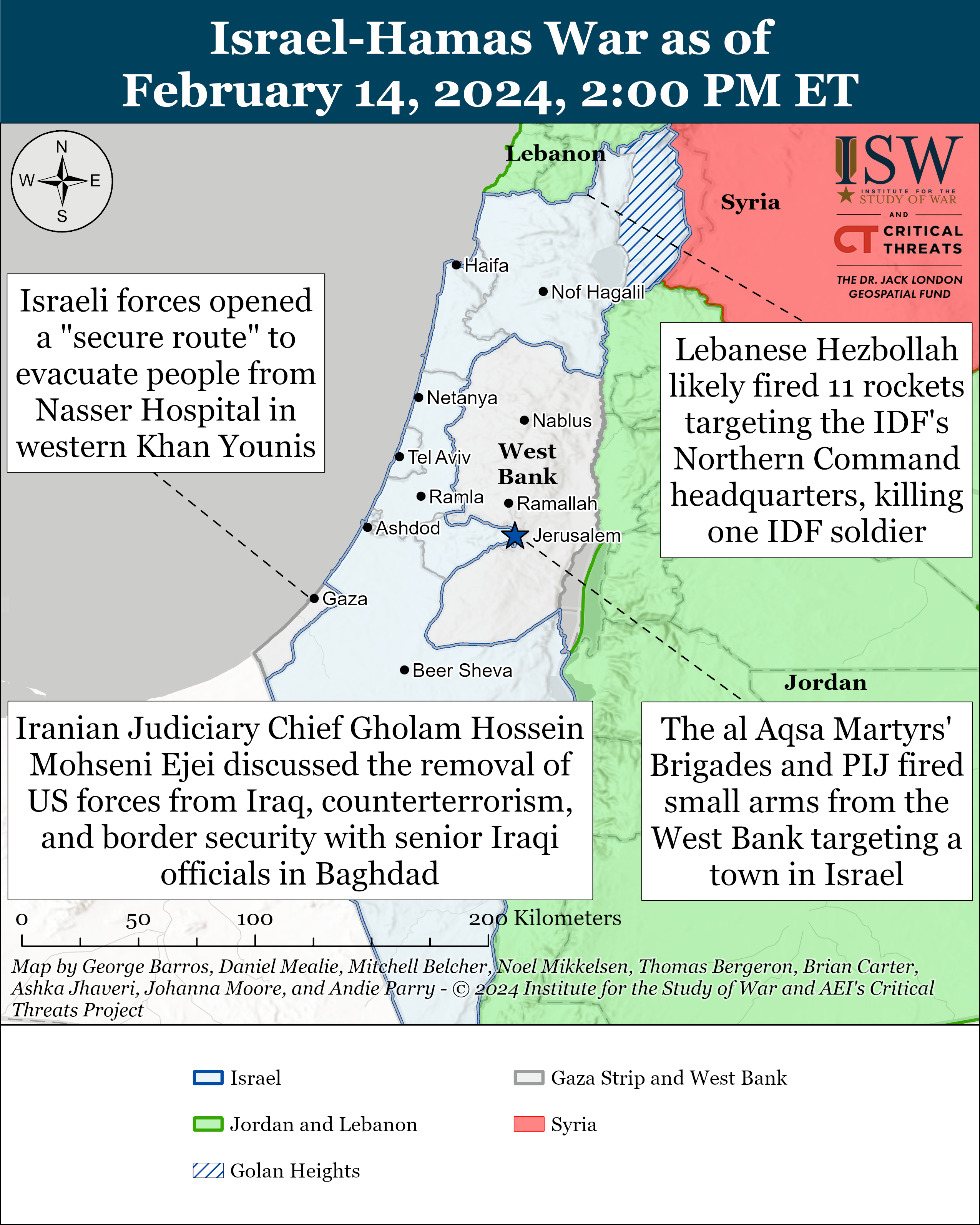
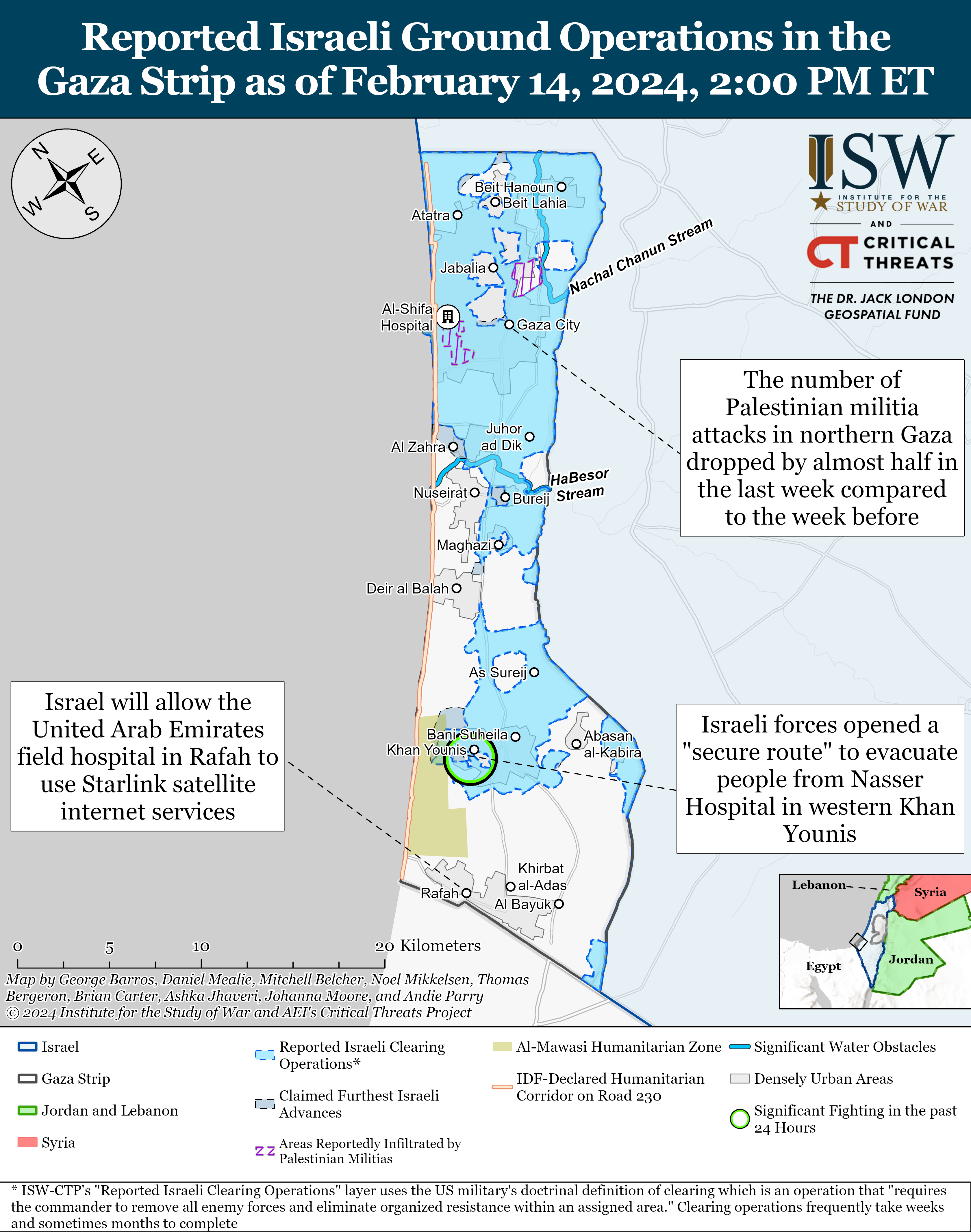
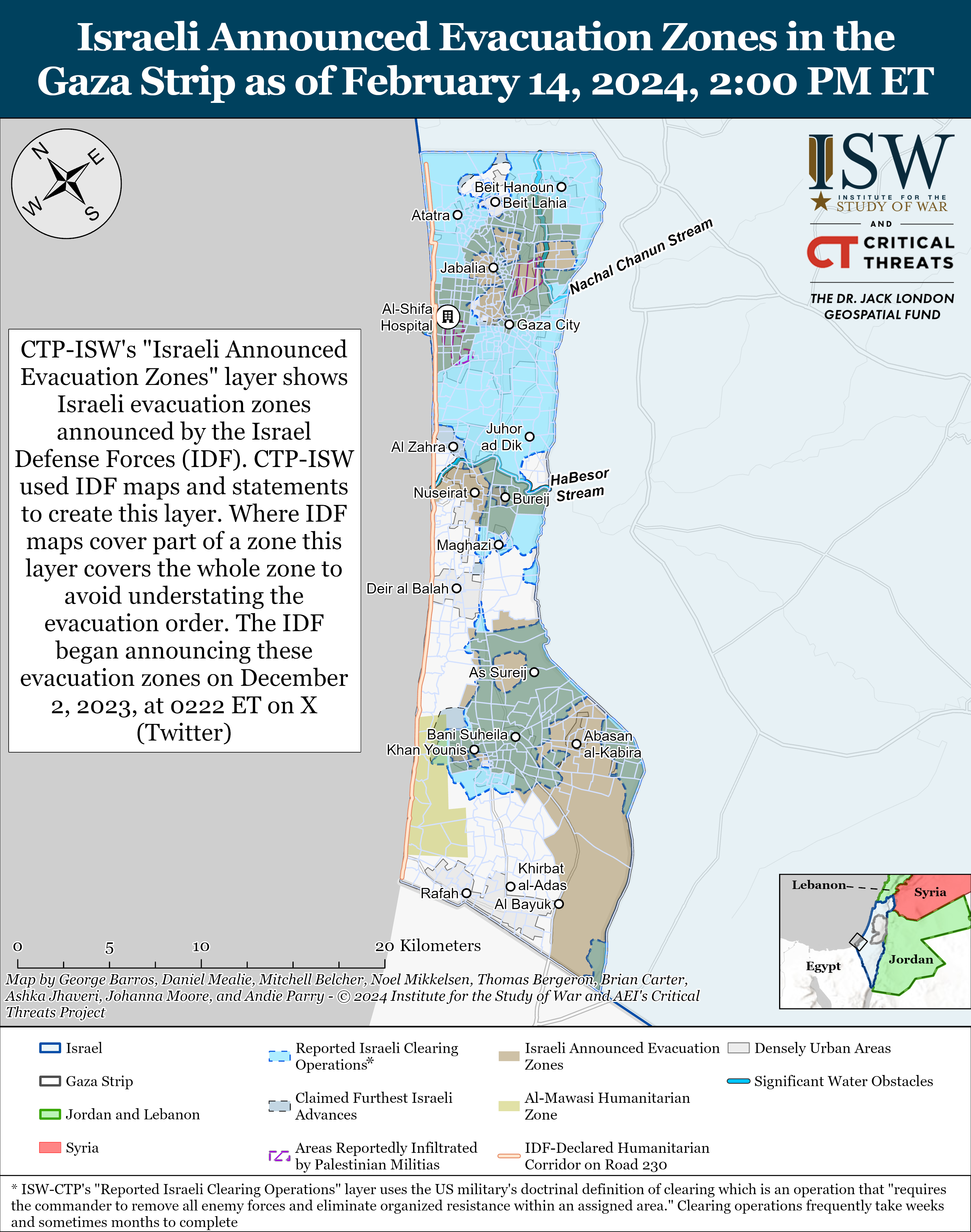
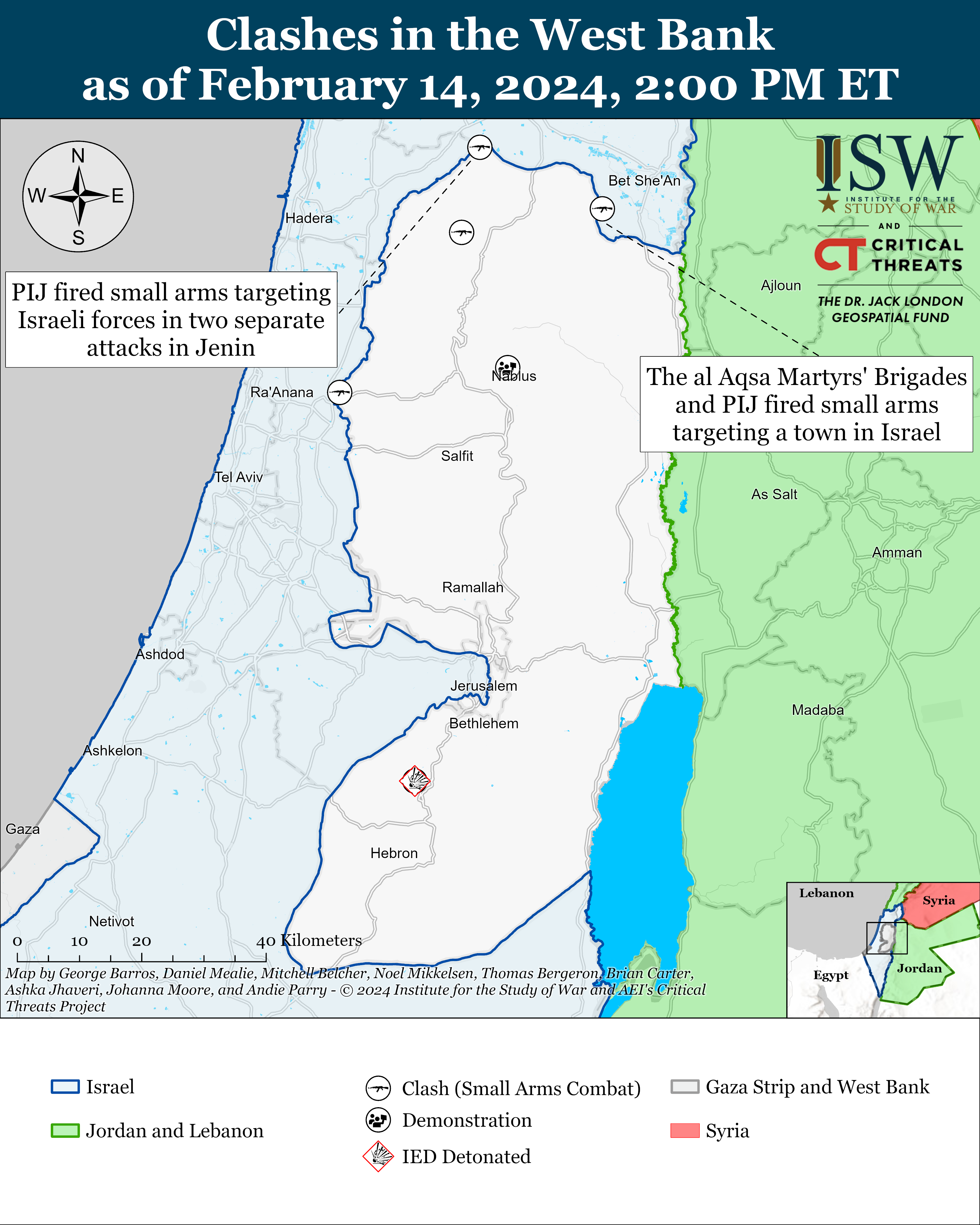
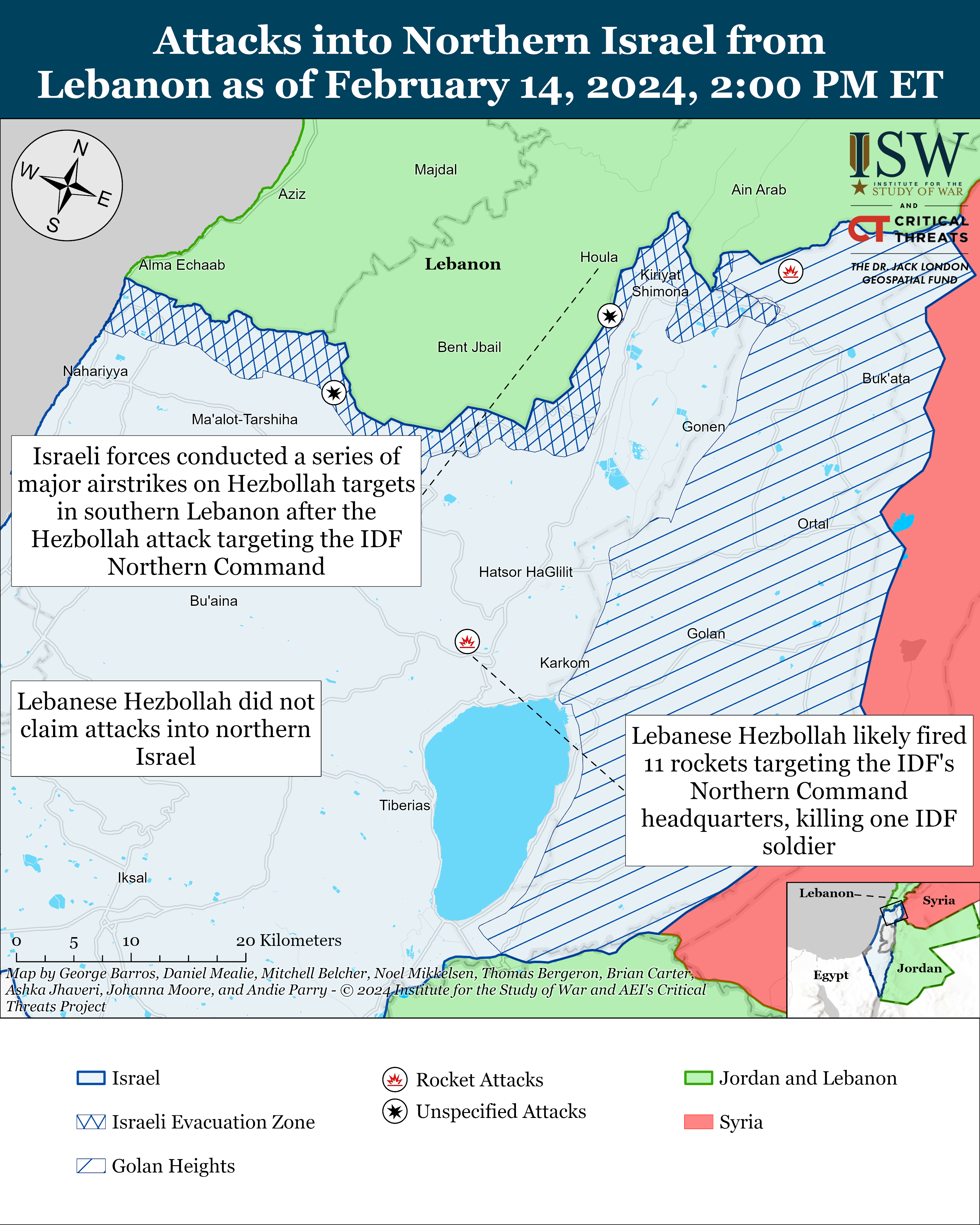
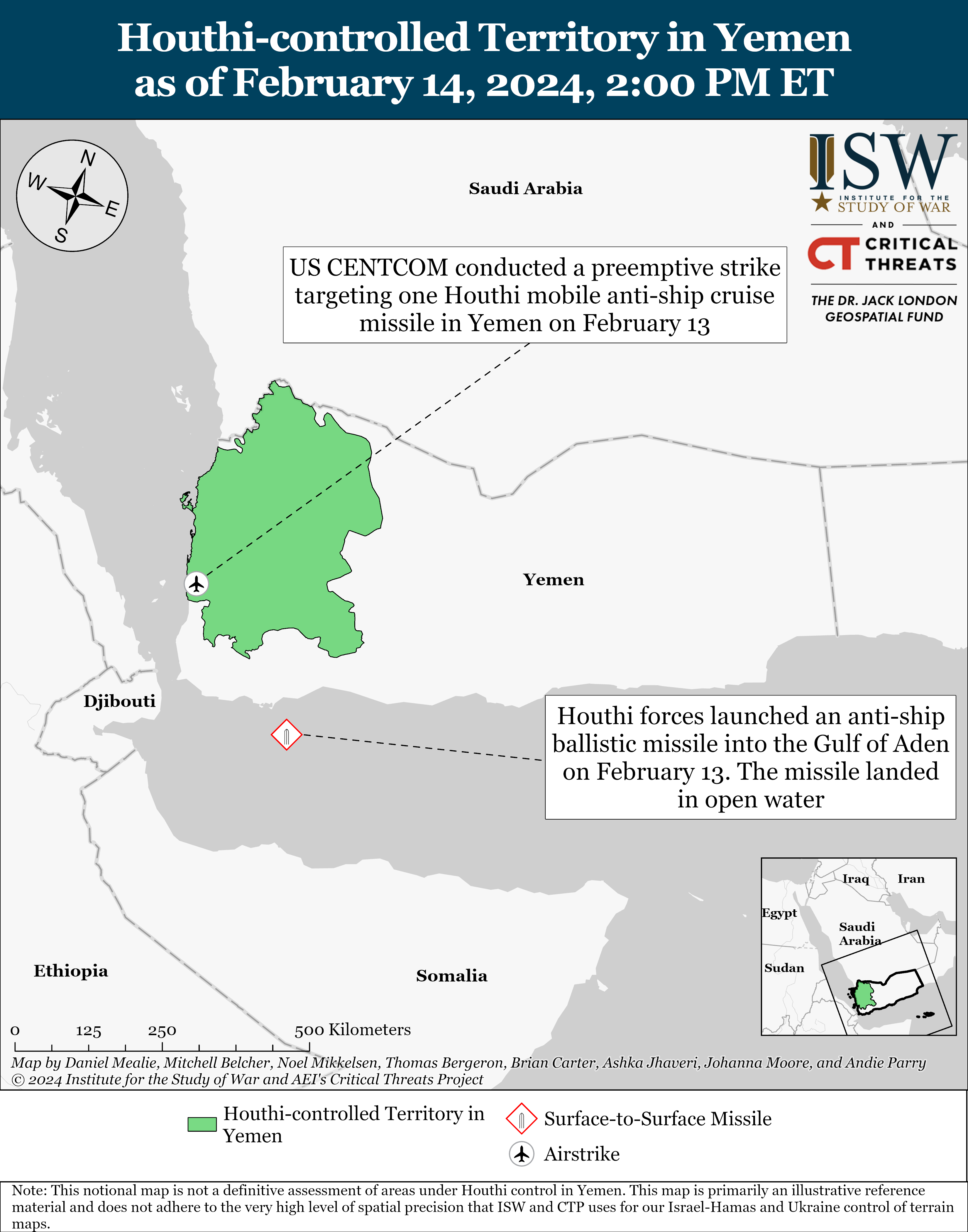
No comments:
Post a Comment